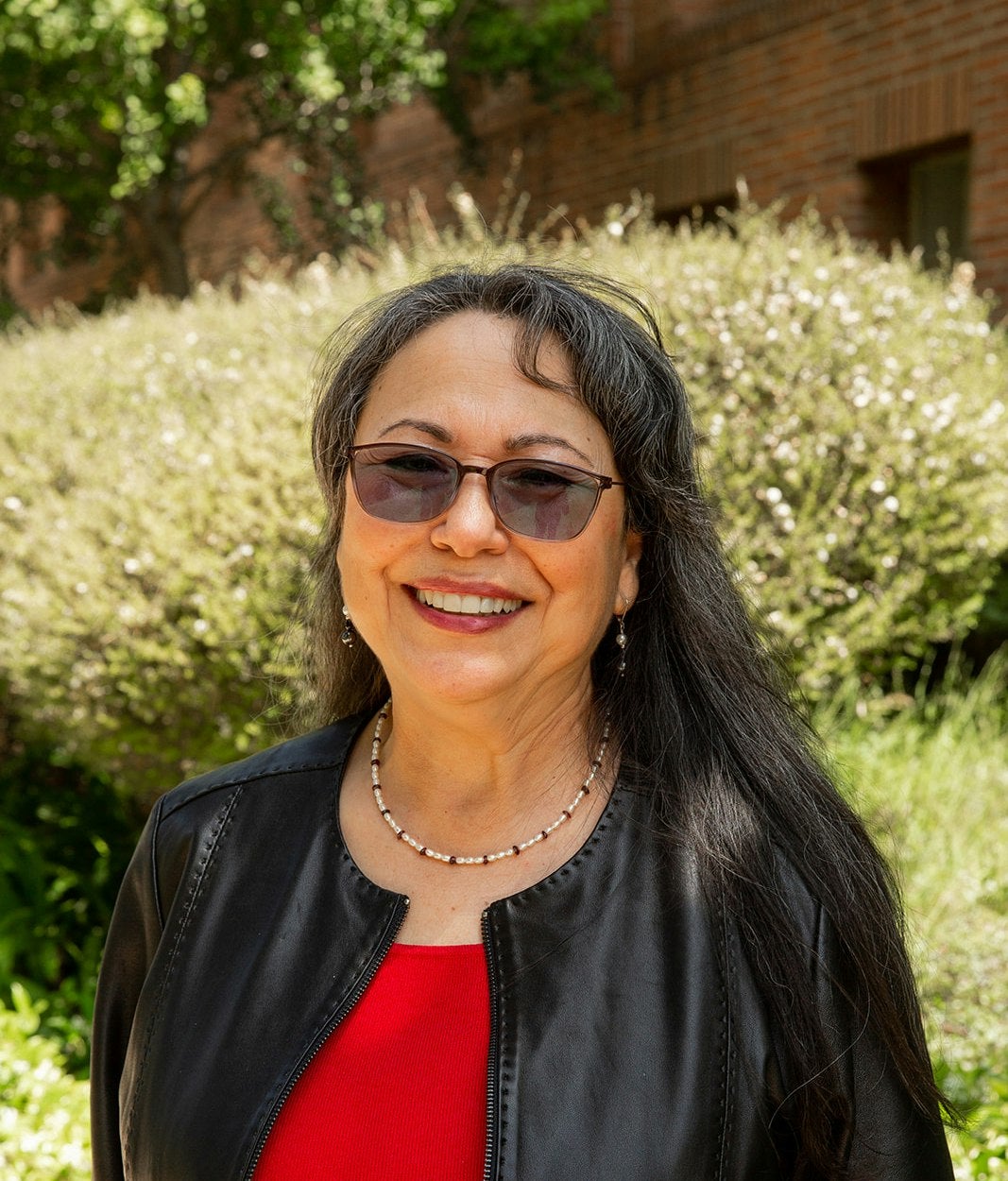Rescheduled event highlights work of scholar of sociology of education.
UCLA Professor of Education Sylvia Hurtado will deliver the 2021 AERA Distinguished Lecture on Thursday, Sept. 30, 6-7 p.m., EDT. The lecture, titled “The Inevitability of Racial Bias and Exclusion: Implications for Identity-Based Education and Practice,” is rescheduled from the Virtual Annual Meeting in April. The event will include a welcome from AERA President Na’ilah Suad Nasir and an introduction from AERA Past President Shaun R. Harper, with an open discussion with Q&A from virtual attendees following Hurtado’s lecture.
A brief abstract from Hurtado states:
“Racial/ethnic identity groups have endured racial profiling, are targets of hate crimes, and are often viewed not as individuals but as a faceless mass on a daily basis—even in classrooms. Dr. Hurtado personalizes “facelessness” using research on campus racial climates and Latinx experiences, articulating how our tendencies for recognition bias are perpetuated and reinforced at the individual and institutional levels in education. She articulates the need for identity-based education, re-humanizing practices, and increased specificity to target racial equity aims in higher education.”
A longstanding AERA Fellow, Hurtado is a professor in the division of Higher Education and Organizational Change in the UCLA School of Education and Information Studies. As a first-generation Latina student from San Antonio, Texas, she has made a lifelong study of the sociology of education. Influenced by her experiences, her scholarship focuses on student educational outcomes, campus racial climates, and equity and inclusion in higher education.
Hurtado says that looking back on her career as an academic researcher, “You think about your career and [wonder], ‘What message can I send?’ and what I was thinking about was really trying to touch people … where the issues of race and recognition and identity become very personal, and that reflects a lot of my research and my teaching.
“I hope that I touch those chords with this talk, and also tie it [together] not just at the individual level but also at the institutional [level],” Hurtado notes. “As we’ve seen, recognition bias is about creating this facelessness… not really understanding the differences, not recognizing people’s identities. It happens on a daily basis, but we also know that there are some very serious consequences to recognition bias when it plays into racial profiling or hate crimes. This is a great time to have a broader conversation about how those issues really impact us individually, in how we look at each other and how we become more humane in understanding and appreciating our identities.”
Professor Hurtado says that identity-based education goes beyond the aims of culturally responsiveness, “… recognizing multiple social identities humanizes our interactions because now we understand a little bit more about each other, or, are wiling to learn,” with a recognition of the uniqueness within and among groups that may seem, to those outside those groups, almost the same.
“Identity is incredibly important to specific groups – their cultural traditions, their histories of immigration, all of that,” notes Hurtado. “And becoming more identity-focused, we actually incorporate that in our teaching, in our inclusion practices in the classroom, in the way we collect data on campuses. We’re more specific about specific groups because we want to monitor their progress more accurately. There are a lot of different ways, both institutionally and also in the classroom in which we can become more identity-based in instruction and also learn from each other.”
Professor Hurtado served as director of the Higher Education Research Institute (HERI) at UCLA for more than a decade and is past-president of the Association for the Study of Higher Education. She served on the Board on Higher Education and Workforce of the National Research Council and was on study panels that produced several National Academy Press reports on STEM, student success, and mentoring.
In addition to being inducted as an AERA Fellow in 2011, Hurtado was elected to the National Academy of Education and to the AERA Council in 2019. She has led several national research projects, including NIH-sponsored projects on the longitudinal assessment of students aspiring to STEM careers, and institutional strategies to broaden participation in STEM.
Professor Hurtado’s current research includes case studies of departments that implement culturally aware mentoring among faculty (NIH U01) with the University of Wisconsin; university organizational change after the replication of the Meyerhoff Scholars Program, funded by the Howard Hughes Medical Institute; and another Spencer-funded project on organizing for student success at Hispanic-serving institutions.
Professor Hurtado achieved her Ph.D. at UCLA, her M.Ed. at the Harvard Graduate School of Education, and her A.B. from Princeton University.
To attend the 2021 AERA Distinguished Lecture by Professor Sylvia Hurtado, register at this link.
